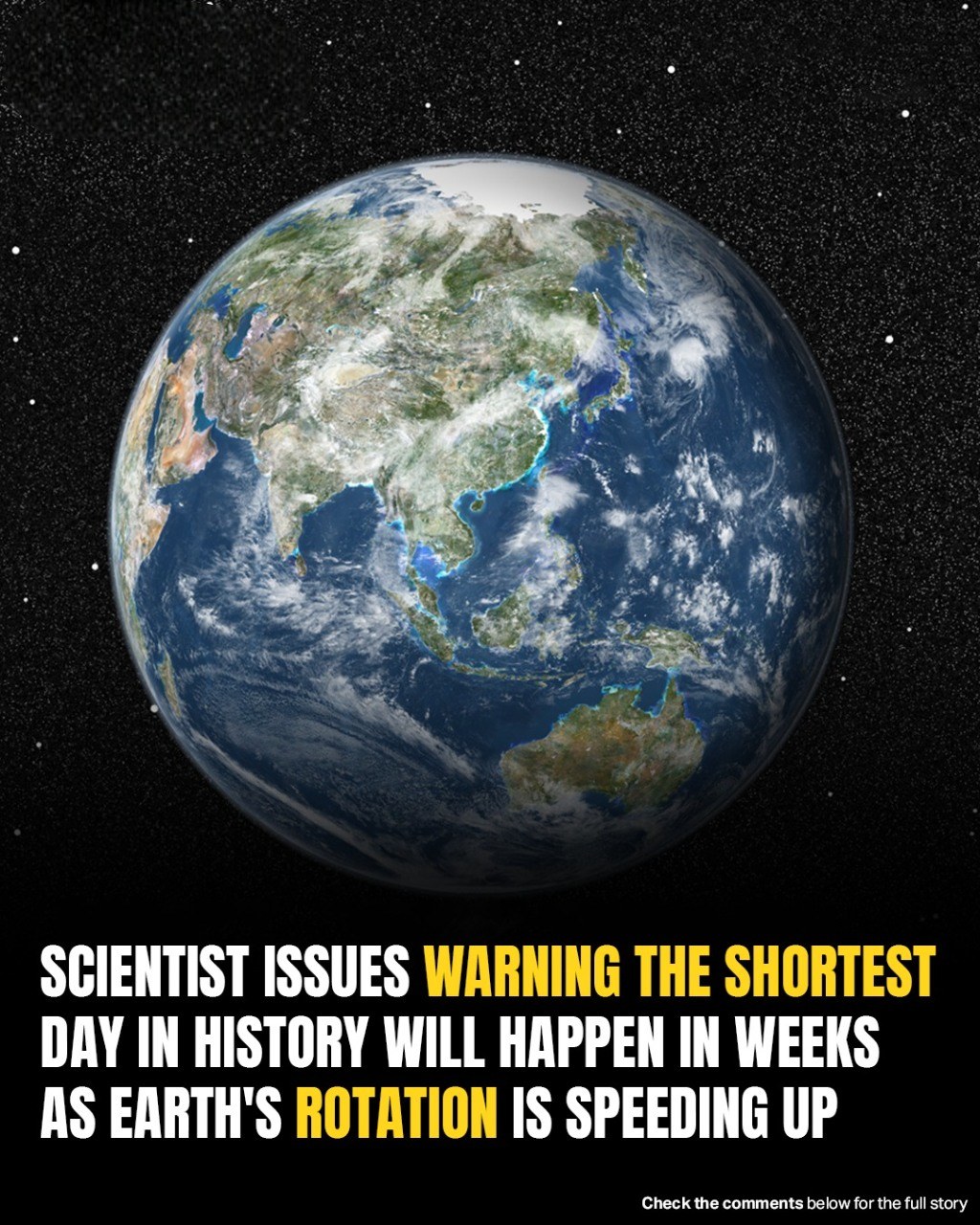Earth’s Shortest Day Approaching
We all know that days change length with the seasons, but a scientist warns that the shortest day in history is coming soon because Earth’s rotation is speeding up unexpectedly. Normally, Earth rotates on its axis 365 times per year, which defines our calendar year. However, this number has changed over time—from 490 to 372 days in ancient history.
Why Is Earth Spinning Faster?
Several factors can affect Earth’s rotation, such as the Moon moving away, shifts inside Earth, or changing sea levels. This time, though, the acceleration is unusual and unexplained. Astrophysicist Graham Jones said certain dates in July and August “could see an acceleration of our little green globe,” making days shorter by up to 1.51 milliseconds. Though small, this change might impact GPS and precise timekeeping.
No Clear Cause Yet
Scientists are puzzled. Leonid Zotov from Moscow State University told Timeanddate.com: “Nobody expected this. The cause of this acceleration is not explained.” He added, “Most scientists believe it is something inside the Earth. Ocean and atmospheric models don’t explain this huge acceleration.”
Earthquakes and other natural events can also speed up Earth’s spin. For example, the massive 2011 earthquake in Japan shifted Earth’s axis by 17 centimeters, shortening our days. NASA’s Dr. Richard Gross explained the effect like a spinning ice skater pulling her arms in to spin faster, saying the earthquake “moved the mass on average a bit closer to the Earth’s rotation axis to make the Earth rotate faster and the length of the day a bit smaller.”
Future Outlook
Despite the current speed-up, scientists expect Earth will slow down again eventually. Zotov reassures, “Sooner or later, Earth will decelerate,” but they don’t know when.
